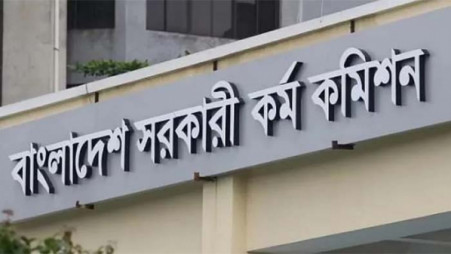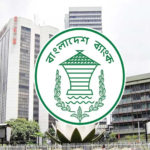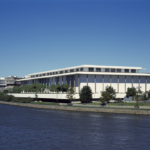
The Bangladesh Public Service Commission (BPSC) plays a pivotal role in ensuring the effective and efficient functioning of the public sector in Bangladesh. Established with the primary aim of recruiting civil servants, the BPSC has evolved over the years to become a key institution in shaping the administrative framework of the country. This article delves into the history, functions, structure, and impact of the BPSC, providing a comprehensive guide to understanding its significance.
Historical Background
The BPSC was established under the provisions of the Constitution of Bangladesh, which was adopted on December 16, 1972. The commission was modeled after the British India Public Service Commission, reflecting the historical influence of British colonial administration. Since its inception, the BPSC has been tasked with ensuring a merit-based recruitment process for the civil service, thereby promoting fairness and transparency.
Functions of BPSC
The primary functions of the BPSC are as follows:
- Recruitment: Conducting examinations and interviews for various government posts to ensure the selection of qualified and capable candidates.
- Advisory Role: Advising the President of Bangladesh on matters related to civil service appointments, promotions, and transfers.
- Policy Formulation: Assisting in the formulation of recruitment policies and procedures to enhance the efficiency of the public service.
- Training and Development: Recommending and overseeing training programs for civil servants to ensure continuous professional development.
- Conducting Examinations: Administering the Bangladesh Civil Service (BCS) examinations, which are the primary gateway to entering the civil service.
Structure of BPSC
The BPSC is composed of a Chairman and several members, all appointed by the President of Bangladesh. The commission operates through various departments and units, each tasked with specific functions to streamline the recruitment process. The major departments include:
- Examination Department: Responsible for conducting the BCS examinations and other recruitment tests.
- Administration Department: Handles the internal administration of the BPSC, including personnel management and financial operations.
- Research and Development Department: Focuses on policy research, development of new recruitment techniques, and improvement of existing procedures.
- Legal Department: Deals with legal matters, including the interpretation of rules and regulations related to the civil service.
Recruitment Process
The recruitment process of the BPSC is highly structured and involves multiple stages to ensure the selection of the most suitable candidates. The key stages are:
- Preliminary Examination: A qualifying test designed to screen candidates for the written examination.
- Written Examination: A comprehensive test covering various subjects relevant to the civil service.
- Viva Voce (Interview): An oral examination to assess the candidate’s personality, aptitude, and suitability for the civil service.
- Medical Examination: A health check to ensure the candidate’s fitness for service.
Impact on Public Administration
The BPSC has had a profound impact on the public administration of Bangladesh. By adhering to a merit-based recruitment system, the commission has helped to create a competent and efficient civil service. Some of the key impacts include:
- Promoting Meritocracy: Ensuring that only the most qualified individuals are selected for civil service positions.
- Enhancing Transparency: Implementing fair and transparent recruitment processes to minimize corruption and favoritism.
- Improving Efficiency: Recruiting skilled and capable personnel to enhance the overall efficiency of public administration.
- Supporting Development: Contributing to national development by ensuring that the civil service is staffed with competent and dedicated individuals.
Challenges and Future Directions
Despite its successes, the BPSC faces several challenges, including:
- Resource Constraints: Limited resources and funding can hinder the commission’s ability to conduct its functions effectively.
- Political Interference: Ensuring the independence of the BPSC is crucial to maintaining its credibility and effectiveness.
- Modernization Needs: Adapting to technological advancements and modern recruitment practices is essential for the BPSC to remain relevant.
Looking ahead, the BPSC must focus on:
- Capacity Building: Investing in capacity building to enhance the skills and capabilities of its staff.
- Technological Integration: Leveraging technology to streamline recruitment processes and improve efficiency.
- Policy Reforms: Implementing policy reforms to address existing challenges and align with global best practices.
The Bangladesh Public Service Commission is a cornerstone of the country’s public administration, playing a critical role in ensuring that the civil service is staffed with capable and dedicated individuals. Through its commitment to meritocracy, transparency, and efficiency, the BPSC has significantly contributed to the development and governance of Bangladesh. As the country continues to evolve, the BPSC must adapt to new challenges and opportunities, ensuring that it remains a vital institution in shaping the future of Bangladesh’s public service.
By focusing on continuous improvement and embracing modern practices, the BPSC can continue to fulfill its mission of serving the nation with integrity and excellence.
Frequently Asked Questions about the Bangladesh Public Service Commission (BPSC)
General Information
- What is the Bangladesh Public Service Commission (BPSC)?
The BPSC is an independent constitutional body responsible for recruiting civil servants in Bangladesh through a merit-based system. - When was the BPSC established?
The BPSC was established following the adoption of the Constitution of Bangladesh on December 16, 1972. - What are the primary functions of the BPSC?
The BPSC’s primary functions include recruitment, advising the President on civil service matters, policy formulation, training and development, and conducting examinations. - Who appoints the members of the BPSC?
The President of Bangladesh appoints the Chairman and members of the BPSC. - What is the BCS examination?
The Bangladesh Civil Service (BCS) examination is a competitive exam conducted by the BPSC for recruiting candidates into various civil service positions.
Recruitment Process
- What are the stages of the BCS examination?
The BCS examination consists of a preliminary examination, a written examination, a viva voce (interview), and a medical examination. - How can I apply for the BCS examination?
You can apply for the BCS examination through the BPSC’s official website by filling out the application form and paying the required fee. - What qualifications are required to sit for the BCS exam?
Applicants must have at least a bachelor’s degree from a recognized university. - How often is the BCS exam held?
The BCS examination is typically held annually, though the schedule can vary. - What subjects are covered in the BCS written examination?
The written examination covers a range of subjects, including Bangla, English, General Knowledge, and subjects specific to the cadre being applied for.
Examination Details
- What is the pass mark for the preliminary examination?
The pass mark for the preliminary examination is usually 40%. - How long is the preliminary examination?
The preliminary examination is typically 2 hours long. - What is the format of the preliminary examination?
The preliminary examination consists of multiple-choice questions (MCQs). - How many papers are there in the written examination?
The written examination comprises several papers, with the number varying depending on the cadre applied for. - What is the duration of each paper in the written examination?
Each paper in the written examination typically lasts 3 hours.
Preparation Tips
- What study materials should I use for the BCS exam?
Recommended study materials include textbooks on relevant subjects, previous years’ question papers, and BCS exam guides. - Are coaching centers helpful for BCS preparation?
Coaching centers can be helpful for structured study plans and guidance, though self-study is also effective. - How important is time management during the BCS exam?
Time management is crucial, especially during the preliminary and written examinations, to ensure all questions are attempted. - Can I find previous years’ BCS exam papers online?
Yes, previous years’ question papers are available on the BPSC’s official website and other educational platforms. - What are some effective revision strategies for the BCS exam?
Effective revision strategies include summarizing notes, practicing MCQs, taking mock tests, and reviewing previous question papers.
Career and Opportunities
- What career opportunities are available after passing the BCS exam?
Successful candidates can join various cadres, including Administration, Police, Foreign Service, and Education, among others. - What is the starting salary for a BCS officer?
The starting salary varies by cadre and rank, but it is generally competitive and includes various allowances. - Are there opportunities for further training and development after joining the civil service?
Yes, BCS officers often receive continuous training and professional development throughout their careers. - Can BCS officers pursue higher education while in service?
Yes, BCS officers can pursue higher education, often with opportunities for study leave and scholarships. - What is the promotion policy for BCS officers?
Promotions are based on performance, seniority, and vacancies, with regular assessments and evaluations.
Policy and Administration
- How does the BPSC ensure transparency in the recruitment process?
The BPSC ensures transparency through a merit-based system, public notifications, and strict adherence to rules and regulations. - What measures are taken to prevent corruption in the BPSC?
The BPSC has stringent measures, including audits, oversight committees, and legal frameworks, to prevent corruption. - How can candidates file a complaint regarding the BPSC process?
Candidates can file complaints through the BPSC’s official website or contact the BPSC office directly. - Is there any reservation policy in the BCS recruitment?
Yes, there are reservation policies in place for certain categories, including women, minorities, and people with disabilities. - How does the BPSC contribute to national development?
By ensuring a competent civil service, the BPSC contributes to effective governance and the implementation of development policies.
Exam Results and Appeals
- How are BCS exam results announced?
Results are announced on the BPSC’s official website and through various media outlets. - What should I do if I fail the BCS exam?
Candidates can reapply for the next BCS exam, focusing on improving their preparation. - Is there a limit to the number of times I can take the BCS exam?
Yes, candidates can typically attempt the BCS exam a maximum of three times. - Can I appeal my BCS exam results?
Candidates can request a review of their results through a formal appeal process. - What is the process for requesting a review of exam results?
The review process involves submitting a written application to the BPSC, outlining the grounds for the review.
Training and Development
- What types of training programs does the BPSC recommend for new recruits?
Training programs include foundational courses, specialized training for specific cadres, and ongoing professional development. - How long is the training period for new BCS officers?
The training period varies by cadre but generally lasts several months to a year. - Are BCS officers trained in leadership and management skills?
Yes, training programs often include modules on leadership, management, and public administration. - Can BCS officers be posted abroad for training?
Yes, there are opportunities for international training and exchange programs. - What is the role of the Bangladesh Public Administration Training Centre (BPATC)?
The BPATC provides training and development programs for civil servants, enhancing their skills and competencies.
Miscellaneous
- How does the BPSC handle administrative reforms?
The BPSC works with the government to implement administrative reforms aimed at improving public service efficiency. - What is the role of the BPSC in policy formulation?
The BPSC advises the government on civil service policies and helps formulate recruitment and training policies. - How does the BPSC address grievances from civil servants?
The BPSC has mechanisms in place for addressing grievances, including a formal complaint and resolution process. - Are there any publications by the BPSC?
The BPSC publishes annual reports, examination guidelines, and policy documents. - What is the official website of the BPSC?
The official website of the BPSC is www.bpsc.gov.bd. - How can I contact the BPSC for more information?
You can contact the BPSC through their official website, phone numbers, or by visiting their office. - What languages are used in the BCS examinations?
The BCS examinations are conducted in Bangla and English. - Does the BPSC have a role in the recruitment of defense personnel?
No, the BPSC is not involved in the recruitment of defense personnel; this is handled by separate defense recruitment bodies. - What is the age limit for applying to the BCS exam?
The age limit for applying to the BCS exam is typically between 21 and 30 years, with some relaxations for specific categories. - Can foreign nationals apply for the BCS exam?
No, only Bangladeshi citizens are eligible to apply for the BCS exam.








